|
A few Sundays ago, our parish priest mentioned a phrase in his homily that stuck with me for several days. He said, “The most important person in the world is the one who is in front of you right now.” I think this is a phrase St. Vincent de Paul would live by if he were among us today. St. Vincent de Paul is well known for his service to the lowliest members of society. He was a French Catholic priest who dedicated his priestly career to the community outreach and evangelization of the poor by founding the Congregation of the Mission. Through his example, St. Vincent de Paul teaches us to see Christ in the poor and suffering, helping us to live out Jesus’ calling, “Whatever you did for one of these least brothers of mine, you did for me” (Matthew 25:40). St. Vincent de Paul said, “The poor have much to teach you. You have much to learn from them.” As we speak and listen to the poor, we come to know God better and are humbled by the circumstances of others. By extending a helpful hand or lending an ear to the less fortunate, we show God’s love and acceptance of all. There are many ways we can demonstrate this love and acceptance. Consider one of the following:
This last point is an important one. Although we may not encounter the financially poor every day, we do face people daily who may be poor in their spirituality, relationships, knowledge, and other ways. By making an effort to lend a listening ear or helping hand to coworkers, friends, family, people in the grocery store, those walking to work or traveling on the subway in addition to the homeless begging on the streets, we can help to achieve the work of God on earth a little bit day by day. I recently came across a picture quote that read, “It’s worth the trouble to become the person you were meant to be.” I was instantly reminded that God has an individual plan for me, just as he does for everyone else. God utilizes us to do his good work in our communities, striving to serve both those who lack financial resources or are poor or dejected in spirit. St. Vincent de Paul said to his priests, “Do the good that presents itself to be done…God lets us know he wants of us. We belong to him and not to ourselves. If he increases our work, he adds to our strength.” We must be open to the good work God wants to accomplish through us. To do this, we must continue our daily prayer, pay attention to opportunities where God is calling us to serve, and keep an optimistic heart. St. Vincent de Paul, pray for us! **This blog was originally published on October 6, 2016.** **This image is from: http://vincentians.com/en/vincent-paul-and-creative-love/**
0 Comments
9/7/2021 “Whoever loses his life for my sake will find it”: Proclaiming Christ’s Challenging Call to LoveRead Now
“Then Jesus said to his disciples, ‘Whoever wishes to come after me must deny himself, take up his cross, and follow me. For whoever wishes to save his life will lose it, but whoever loses his life for my sake will find it’” (Mt 16:24-25).
This summer, I’ve been blessed with the opportunity to work as an intern for the Catholic Apostolate Center and collaborate on several catechetical projects with other staff members there. One of these projects was the creation of a new version of From Practicing Catholics to Apostles on Mission, a faith formation course for those who want to delve more deeply into their faith and become more actively involved in the Church. Since many of the program’s participants are young adults, drafting lessons for this course allowed me to reflect on the unique opportunities and challenges that come with speaking to young adults about the Faith. This task always involves a special focus on presenting Church teaching in a way that is clear, approachable, and attractive. But with this task comes a special challenge: how can we avoid the temptation to “water down” the faith or to omit or sugarcoat its more difficult truths? How can we imitate the most perfect preacher, who stated plainly: “Take up your cross and follow me” (Mt 16:24)? One of the Apostles on Mission sessions on which I worked focuses on the universal call to holiness. It seems to me that this teaching is one that we must take care to proclaim in its fullness, especially when speaking to young people: “The Lord Jesus, the divine Teacher and Model of all perfection, preached holiness of life to each and every one of His disciples of every condition…Thus it is evident to everyone, that all the faithful of Christ of whatever rank or status, are called to the fullness of the Christian life and to the perfection of charity” (Lumen Gentium 40). This message shatters the common assumption that holiness is attainable by only a few individuals who perform extraordinary works. It reveals that holiness consists instead in the “perfection of charity” and thus is truly possible for everyone, because although we cannot all accomplish great or miraculous deeds, we can all act with great love. Proclaiming this universal call to holiness is particularly important because—while we hear the commandments over and over—"Love the Lord your God with all your heart…Love your neighbor as yourself”—a very subtle but serious temptation can creep in. Namely, we can be tempted to love only when it is easy, when we find the other person agreeable, when we think they deserve it. But in fact, the perfect love that Christ commands is often difficult. It is difficult to love God daily by resisting temptation, practicing self-denial, and committing ourselves to regular prayer. It is difficult to love our neighbor on a daily basis by treating them with patience, forgiving their faults, and making a generous gift of ourselves to them. Pope St. John Paul II summarized it well in his address to the young people of Boston: “Real love is demanding. I would fail in my mission if I did not clearly tell you so. For it was Jesus—our Jesus himself—who said: ‘You are my friends if you do what I command you’ (Jn 15:14). Love demands effort and a personal commitment to the will of God. It means discipline and sacrifice, but it also means joy and human fulfillment” (Holy Mass on Boston Common, 1979). St. John Paul II not only acknowledges the difficulty of Christ-like love, he also emphasizes that he has a duty to proclaim this difficulty to the Church. He recognized that if we are not warned that “real love is demanding,” we will inevitably discover this reality through our own experience. And if we are not prepared for difficulty, one of two tragic results will likely occur. Finding love demanding, we may be tempted to believe that Jesus didn’t really mean “Be perfect, just as your heavenly Father is perfect” (Mt 5:48) and might ease up and only love when it is easy. Alternatively, we might be tempted to give up in despair, like the rich young man of the Gospel who was taken aback by Jesus’ demanding invitation and “went away sad” (Mk 10:22). Although we must proclaim to young people the difficulty of what Jesus commands, we can also provide them with the hope that enables all Christians to rise to the challenge that lies before them. The first hopeful reminder is this: God is the one who sanctifies us, who always gives us the grace we need to fulfill his call. Cooperating with this grace does require that we are willing to say “yes” to the daily opportunities to undertake the difficult work of loving. But the further hopeful news is that God generously provides hundreds of these opportunities every day. As Pope Francis illustrates in his apostolic exhortation, Gaudete et Exsultate: “This holiness to which the Lord calls you will grow through small gestures. Here is an example: a woman goes shopping, she meets a neighbour and they begin to speak, and the gossip starts. But she says in her heart: ‘No, I will not speak badly of anyone.’ This is a step forward in holiness. Later, at home, one of her children wants to talk to her about his hopes and dreams, and even though she is tired, she sits down and listens with patience and love. That is another sacrifice that brings holiness. Later she experiences some anxiety, but recalling the love of the Virgin Mary, she takes her rosary and prays with faith. Yet another path of holiness. Later still, she goes out onto the street, encounters a poor person and stops to say a kind word to him. One more step.” A third word of hope: Every time we take one of these “steps”—loving even when it is hard—we train our heart, like runners training for a marathon. With each step, our heart grows stronger, and it becomes easier to love the next time. One more message of hope can be found at the end of St. John Paul II’s words that I quoted before: “[Love] means discipline and sacrifice, but it also means joy and human fulfillment” (my emphasis). This message was closely echoed by another great saint of modern times: St. Teresa of Calcutta. She wrote: “We should ask ourselves, ‘Have I really experienced the joy of loving?’ True love is love that causes us pain, that hurts, and yet brings us joy. That is why we must pray and ask for the courage to love.” When we consider the words of both saints, there initially seems to be a contradiction—how can love cause both pain and joy? But this is ultimately the same paradox that lies at the heart of the Gospel: Christ promises that only he who “loses his life for my sake will find it” (Mt 16:25)—that is, only if we “lose” our life in self-giving can we find lasting fulfillment in this life and eternal happiness in the next. It takes courage and great faith to believe in this promise of Christ, but there are two places we can find evidence to support it. The first is in the witness of St. John Paul II and St. Teresa of Calcutta themselves, along with the countless other saints whose lives witnessed to the truth of their words. These men and women loved with total generosity even when it was difficult; they faced many additional sufferings, and yet they were filled with joy—a joy so radiant and constant that it could not have been a mere appearance. We can also find evidence in our own experience that proves the opposite side of this truth: when we have tried to fill our hearts and lives with things that aren’t God, we have all experienced how quickly happiness flees and gives way to emptiness and sorrow. By witnessing the joy of the saints and recalling our own sorrow when we deviate from the path they trod, we can trust that over time, as we continue the demanding work of striving to love as Christ loved, He will gradually reshape our hearts and help us experience the joy that sacrificial loving brings. In summary, when we share the Gospel with young people, we must take care to speak the fullness of the truth and tell them of both the joy and suffering that accompanies the lives of those who follow Christ. By doing so, we help them avoid the fate of those who excuse themselves or fall into despair when they feel the weight of the cross. But even more, doing so helps them find the narrow path that leads to the life they most desire, “life in its fullness,” as St. John Paul II describes: “Jesus does not ask us to give up living, but to accept a newness and fullness of life that only He can give. The human being has a deep-rooted tendency to ‘think only of self,’ to regard one’s own person as the center of interest and to see oneself as the standard against which to gauge everything. One who chooses to follow Christ, on the other hand…looks on life in terms of gift and gratuitousness, not in terms of conquest and possession. Life in its fullness is only lived in self-giving, and that is the fruit of the grace of Christ: an existence that is free and in communion with God and neighbor” (Message for World Youth Day XVI, 2001). It has been a great gift to collaborate with the Catholic Apostolate Center in their efforts to help others recognize and respond to God’s call to holiness, to the fullness of life. May all of us—of every age—heed this call. May we have the courage to proclaim the fullness of the truth, the strength to love when it is difficult, and the confident hope that doing these things will bring the profound peace and joy that we seek.
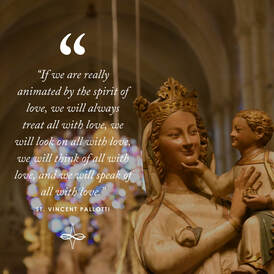 What motivates us to do what we do? If it is love, then we are called to “will the good of another” (St. Thomas Aquinas quoted in the Catechism of the Catholic Church, 1766). The object of our love is not ourselves or our self-interest. It is God and neighbor. St. Vincent Pallotti universalizes love in this way: “If we are really animated by the spirit of love, we will always treat all with love, we will look on all with love, we will think of all with love, and we will speak of all with love” (OOCC III, 338). This type of love requires sacrifice and generosity. Of course, the greatest act of love was the sacrifice of Christ on the Cross. We see generosity and sacrifice in the Blessed Virgin Mary saying “yes” to the Angel Gabriel and St. Joseph setting aside what he wanted to do and always doing the will of God. Sacrificing ourselves for the other, thinking not of self, but the other, is not a typical way of behaving. We seem to be able to do it on a small scale with those closest to us, which is the place to start. Bit by bit, through self-sacrifice, a generosity of spirit grows, love grows. Does this happen on its own? No, the Holy Spirit is moving in and through each of us. The grace of God gives us the ability to sacrifice and be generous, moving us toward universal love. May the charity of Christ urge us on!
“Remember the days past when, after you had been enlightened, you endure a great contest of suffering. At times you were publicly exposed to abuse and affliction, at other times you associated yourselves with those so treated. You even joined in the sufferings of those in prison and joyfully accepted the confiscation of your property, knowing that you had a better and lasting possession. Therefore, do not throw away your confidence, it will have great recompense. You need endurance to do the will of God and receive what he has promised. ‘For, after just a brief moment, he who is to come shall come, he shall not delay. But my just one shall live by faith, and if he draws back I take no pleasure in him.’ We are not among those who draw back and perish, but among those who have faith and will possess life.” -Hebrews 10:32-39 We are living in an extremely tumultuous time. For over a year, a virulent sickness has swept over the world and caused havoc with our health, our economies, and the very way we relate to one another. It has separated us from friends, co-workers, extended family, and our church community, to name a few. In battling its transmission, we have been forced into isolation—severely limiting gatherings, celebrations together, and even sharing hugs. We have been stretched beyond our normal mode of living and the equilibrium of our lives has been disturbed, with no end clearly in sight. On top of all this, we have experienced political and social unrest – polarized groups rising against one another, causing great division instead of building unity. For any individual, these circumstances could easily defeat us and have us succumb to despair. I think of the Marty Haugen song many of us sing every year during Advent: “For you, O Lord, my soul in stillness waits, truly my hope is in you.” It resounds in my mind and heart as we traverse through such unsettling circumstances. Amidst all the unknowns and unrest, I have witnessed a beautiful vision that overrides all the devastation of the circumstances we are in. I have seen people sacrifice to care for others and people coming together to celebrate the joy of life in trying situations. I have witnessed God living and walking among us through the selfless individuals choosing to stand tall in faith and do all things in love. As Christians we are taught “God is love.” We were created out of love, for love. We are part of God’s great creation and we belong to Him. He guides, instructs, and protects us always. What a magnificent testament to hope in! We pray in our Creed: “I look forward to the resurrection of the dead and the life of the world to come.” This is part of what we profess at Mass before we enter into the liturgy of the Eucharist – which is the source and summit of our faith. We receive the Body, Blood, Soul and Divinity of our Lord to nourish us in body and spirit. This profession of faith, this gift of communion, allows us to walk through all the adversities of life as joyful people who understand our hope lies not in this world but in heaven, forever. This living hope comes from being nurtured by the stories from Scripture, being taught prayers and devotions, receiving the sacraments of Reconciliation and Eucharist frequently, singing hymns of praise and thanksgiving, and practicing acts of kindness daily. What an ironclad defense we have against any evil that would afflict our body or soul! How beautiful it is that as Christians we can be united together in faith wherever we are. This is how I have remained steadfast in hope and overcome fear during these trials that continue to badger us. Surrounding myself with pictures of the Holy Family, the saints, the crucifix, listening to Christ-centered music, praying novenas and prayers, attending Mass often, and sitting in the quiet and listening for God to speak to me are all ways I actively participate in being a person of hope. Even more simply, just keeping my home clean and neat makes it a peaceful sanctuary where I can experience God’s presence. I have no control over the things of this world that loom large over me, but that is okay. As long as I adjust my spiritual armor and remain grounded in Christ, I have every reason to walk in hope, joyously, no matter the circumstances. My husband I adopted the habit of praying Saint Patrick’s Breastplate each morning before going out into the fray and it has born much good fruit in our lives. I offer it to you as another tool to assist you in the battle against evil. We are children of light, born of love and destined for heaven. We belong to Him. He made us a community and all around the world, individually and in groups, we profess our faith boldly, we share His message of love constantly, and we support one another in solidarity of His kingdom. It is our job to remain in Him and He will supply all the grace needed to walk tall in hope. As St. Teresa of Avila said: ‘God withholds Himself from no one who perseveres.’ For more resources to guide you through the COVID-19 pandemic, please click here. For more resources on prayer, please click here. On December 8th, the Solemnity of the Immaculate Conception of the Blessed Virgin Mary and the 150th anniversary of the proclamation of St. Joseph as patron of the universal church, Pope Francis proclaimed the Year of St. Joseph. To celebrate this historic moment in the universal Church, the Catholic Apostolate Center has launched a series exploring the depth and richness of fatherhood. We will feature one post a month from fathers at different stages of fatherhood, godfathers, spiritual fathers, priests, and grandfathers throughout the year. We invite you to join us this year in learning more about masculinity, fatherhood, the dignity of labor, and the importance of faithfulness to the will of God. As we continue in our life of faith, we invite St. Joseph to be a father to each one of us, guiding us ever closer to his adopted son, Jesus. May he teach us how to be faithful disciples constantly adoring the face of Christ. To kick off our fatherhood series, I’d like to share some powerful quotes from Pope Francis’ Apostolic Letter, Patris Corde, that will help us more deeply come to know the quiet carpenter who helped raise the Son of God. 1. “Each of us can discover in Joseph – the man who goes unnoticed, a daily, discreet and hidden presence – an intercessor, a support and a guide in times of trouble. Saint Joseph reminds us that those who appear hidden or in the shadows can play an incomparable role in the history of salvation.” Throughout salvation history, God has repeatedly chosen the least likely of candidates to accomplish his will. Moses was slow of speech. Peter was a fisherman. Paul was a persecutor of the Church. Joseph was a carpenter. What matters not to the Lord is our status in life, our accolades, our prestige, or our mightiness, but simply that we do His will. St. Joseph modeled that in every moment of his life—from accepting Mary into his home, to naming his Son Jesus, from fleeing to Egypt, to returning to Nazareth. St. Joseph, teach us obedience and humility. 2. “The greatness of Saint Joseph is that he was the spouse of Mary and the father of Jesus. In this way, he placed himself, in the words of Saint John Chrysostom, 'at the service of the entire plan of salvation.'[7]” Joseph was a father in every sense of the word. He guided and protected his family, provided for them, and loved them with tender affection. Everything he did was for the well-being of Mary and Jesus. He is a strong servant leader—one that all men can learn from. To be a father is a great blessing and gift. St. Joseph, help us to be servant leaders. 3. "Saint Paul VI pointed out that Joseph concretely expressed his fatherhood 'by making his life a sacrificial service to the mystery of the incarnation and its redemptive purpose. He employed his legal authority over the Holy Family to devote himself completely to them in his life and work. He turned his human vocation to domestic love into a superhuman oblation of himself, his heart and all his abilities, a love placed at the service of the Messiah who was growing to maturity in his home.'[8]" Just as faith without works is dead, so too is love devoid of service. St. Joseph did not love solely with his words, but by his actions—which is likely why Scripture does not recount any of his speech—with St. Joseph, there was no need. His entire life was a song of love for the Holy Family and for God. St. Joseph, teach us to love as you loved. 4. "Joseph saw Jesus grow daily 'in wisdom and in years and in divine and human favour' (Lk 2:52). As the Lord had done with Israel, so Joseph did with Jesus: he taught him to walk, taking him by the hand; he was for him like a father who raises an infant to his cheeks, bending down to him and feeding him (cf. Hos 11:3-4)." So often, we confuse holiness with otherworldliness. Perhaps we imagine celestial music, bright light, and the presence of angels accompanying the saints wherever they went. But to be holy is to be most fully human—at St. Iraneus said, “The glory of God is man most fully alive.” True holiness means living out our vocations fully, and that includes family life. St. Joseph would have fed Christ and eaten with him, he would have helped him get dressed or tied his sandals, he would have played games with him, sang with him, and worked with him. To be holy is not to be out of touch with reality. St. Joseph was not above the normal duties of fatherhood. St. Joseph, teach us to live out our vocations fully by taking Christ by the hand. 5. "Even through Joseph’s fears, God’s will, his history and his plan were at work. Joseph, then, teaches us that faith in God includes believing that he can work even through our fears, our frailties and our weaknesses. He also teaches us that amid the tempests of life, we must never be afraid to let the Lord steer our course. At times, we want to be in complete control, yet God always sees the bigger picture." A life of holiness does not mean one devoid of fear or suffering. This was true even for Joseph and Mary. What makes Joseph such a model for us is not that he was fearless, but that he trusted in God. He did many things that were difficult and probably not what he had intended for his life, but he trusted and obeyed. He hears the will of God and acts. Later on, Christ himself does not promise a life without the cross, but that He will always remain with us as we carry our crosses. It is when we give God our fears, frailties, and weaknesses that He can transfigure us for His glory. St. Joseph, teach us to trust God. 6. "During the hidden years in Nazareth, Jesus learned at the school of Joseph to do the will of the Father. That will was to be his daily food (cf. Jn 4:34)." The home of the Holy Family was a domestic church in which virtue flourished and sanctity was cultivated. As the head of the family, Joseph served as a priestly figure and an earthly shadow of God the Father. Joseph would have been a man of Scripture who obeyed God’s commandments and lived a life of authenticity and virtue. How beautiful it is to think that Jesus “learned at the school of Joseph.” St. Joseph, teach us to do the will of the Father. 7. "Just as God told Joseph: 'Son of David, do not be afraid!' (Mt 1:20), so he seems to tell us: 'Do not be afraid!' We need to set aside all anger and disappointment, and to embrace the way things are, even when they do not turn out as we wish. Not with mere resignation but with hope and courage. In this way, we become open to a deeper meaning. Our lives can be miraculously reborn if we find the courage to live them in accordance with the Gospel. It does not matter if everything seems to have gone wrong or some things can no longer be fixed. God can make flowers spring up from stony ground. Even if our heart condemns us, 'God is greater than our hearts, and he knows everything'(1 Jn 3:20)." The words of God to Joseph echo once more for us today: do not be afraid! Fear, stress, and confusion are all normal to the human condition. God is not asking us to erase these feelings from our lives, but to give them over to Him. He is calling us to abandon ourselves to His loving providence and not become imprisoned by these emotions. St. Joseph may have feared for his family’s safety and well-being, but he was not consumed by fear or paralyzed by doubt. Pope Francis calls him, “creatively courageous.” “In the face of difficulty,” he writes, “we can either give up and walk away, or somehow engage with it.” Joseph engaged. St. Joseph, teach us to abandon ourselves to God. 8. "Work is a means of participating in the work of salvation, an opportunity to hasten the coming of the Kingdom, to develop our talents and abilities, and to put them at the service of society and fraternal communion. It becomes an opportunity for the fulfilment not only of oneself, but also of that primary cell of society which is the family." Work is a part of God’s plan for humanity. What was not part of God’s plan was toil or fruitless labor that does not uphold mankind’s dignity. Prior to the Fall, Adam was called to till and cultivate the land. Christ has redeemed work once again by enabling us to offer all that we do and unite it to His sacrifice on the Cross. Our work can now have immeasurable meaning and be a means of sanctification. Joseph is also known as St. Joseph the Worker. He worked as a carpenter throughout his life and in this way provided for his family. When we work for others, when we work well and faithfully, our work can be a means of building up the Body of Christ and loving or serving one another. St. Joseph, teach us the dignity of human labor. 9. "Fathers are not born, but made. A man does not become a father simply by bringing a child into the world, but by taking up the responsibility to care for that child. Whenever a man accepts responsibility for the life of another, in some way he becomes a father to that person." Fatherhood is so much more than physical procreation. It involves the cultivation of family and of the human person. It means providing for the spiritual or physical well-being of others. For this reason, priests are also called “Father.” They represent our Heavenly Father and make manifest His graces poured out in the sacraments. They accompany us on our spiritual journeys and act as shepherds guiding us towards holiness. Godfathers, too, play an important role in society by serving as models of holiness for their godchildren and praying and interceding on their behalf. St. Joseph, teach men true masculinity and authentic fatherhood. 10. "The Church too needs fathers." Not only do families need fathers and stable father figures, the Church and world do as well. Authentic fatherhood is an essential part of God’s plan for humanity and is a part of God’s very identity. Society cannot exist and thrive without healthy and holy fathers. God chose to enter the world through a family and was obedient to his foster father Joseph while under his care. Scripture tells us that he "was obedient to them (Joseph and Mary).” St. Joseph, help raise up strong and loving fathers and father figures in our Church and society. As we journey together in the Year of St. Joseph, let us pray to this powerful intercessor using the prayer of Pope Francis, Hail, Guardian of the Redeemer, Spouse of the Blessed Virgin Mary. To you God entrusted his only Son; in you Mary placed her trust; with you Christ became man. Blessed Joseph, to us too, show yourself a father and guide us in the path of life. Obtain for us grace, mercy and courage, and defend us from every evil. Amen.
I had my third baby in the spring, during the first phase of our area’s government-mandated shutdowns. As with my previous two children, I often found myself tiredly scrolling through social media during countless midnight nursing sessions. And everywhere I looked, I saw discord. Strangers on the internet “crushed” each other with one-liners, ignored or belittled those with whom they disagreed, and twisted the meaning of words to suit their argument’s ends. But I also saw members of local church communities getting into heated arguments that were exacerbated by the email writers’ inability to see each other and hash out their ideological disagreements in person. “Is civil discourse completely dead?” I wondered to myself.
It’s easy to think that if we just say the right thing at the right time our interlocutor will see the error of their thinking and agree with our side of the argument, or that if we pummel our interlocutor with the harsh and unadulterated truth that they will be overwhelmed and converted like St. Paul on the road to Damascus. The ability for everyone to have a voice in the public square via social media and to be able to interact with virtually anyone, at virtually any time, on virtually any topic, has warped our society’s self-control about when, and how, and about what to offer an opinion. Appropriately for this topic of charitable dialogue, today is the feast day of St. Thomas Aquinas, thirteenth-century philosopher and theologian and one of the greatest minds the Catholic Church has ever known. He was exemplary in his efforts to understand and articulate opposing viewpoints and to be thorough and charitable in his defense of faith through reason. Each broad topic he addresses in the Summa Theologiae, his magnum opus, is broken into more specific questions, which are broken into even more specific questions called articles, and for each of these articles Aquinas offers well-thought-out objections before he states his own thesis and then replies to each individual objection. What a difference from our modern culture that is steeped in out-of-context sound bites, Twitter smackdowns, unnecessary generalizations, and logical fallacies! If our calling as followers of Christ is to reflect Christ for others and to evangelize, we ought to be intentional about how we may be the face of God for someone else. If I am the only Christian someone is going to encounter that day—be it in line at the grocery store or on a Facebook comment section—how would I want that experience to be? Sometimes I need to remind myself that no matter how willfully defiant my child is being, no matter how obtuse my acquaintance’s social media post is, that they are unconditionally loved by God, and I am called to love them too. Personally, I have learned not to engage at all in a potential argument on social media. And when I do have disagreements with others, like St. Thomas Aquinas, I try to make sure that I understand the scope of my opponent’s reasoning and what he or she is actually trying to argue before I respond. It is possible to be charitable toward and understanding of others without abandoning the Truth or condemning everyone around us. Perhaps most importantly, I have learned that the virtual world of the internet and social media is best when used to support our lives and relationships in the real world, not as a replacement for them. As we continue into this new year of 2021, I encourage you to think about how you can charitably engage with those you may not agree with. May we look to the model of St. Thomas Aquinas as we seek to evangelize today’s culture with love. “If we are truly animated by the spirit of love, we shall always treat all with love, look on all with love, think of all with love and speak of all with love.” – St. Vincent Pallotti What does it mean to be “animated by the spirit of love?” Jesus said to his disciples that his commandment is “love one another as I love you” (John 15:12). If we believe ourselves followers of Christ, then we must follow this commandment. St. Vincent Pallotti, whose feast day is today, gives us how we do that – treat, look, think, and speak of ALL with love. That is where the challenge is – to do it for all. Pallotti understood that our love, seen as charity, is universal. Pope Francis reminds us in his Encyclical, Fratelli Tutti: “People can develop certain habits that might appear as moral values: fortitude, sobriety, hard work and similar virtues. Yet if the acts of the various moral virtues are to be rightly directly, one needs to take into account the extent to which they foster openness and union with others. That is made possible by the charity that God infuses. Without charity, we may perhaps possess only apparent virtues, incapable of sustaining life in common” (91). Civil and ecclesial unrest, including revolution, as well as pandemic were common things in the Rome of St. Vincent Pallotti’s day in the first half of the nineteenth century. Yet, it did not stop him from recognizing the call of all believers in Christ to go forth as his apostles and witness God’s infinite love to a world that so desperately needed to experience it. Today is no different. We are called to do the same. May the charity of Christ urge us on!
On October 17th, the Catholic Apostolate Center celebrated its ninth anniversary of reviving faith, rekindling charity, and forming apostles in the spirit of St. Vincent Pallotti. The Founder of the Union of Catholic Apostolate, the Pallottine Family, gave these words of St. Paul as a motto, “the charity of Christ urges us on” (2 Cor. 5:14). Pope Francis writes in his new Encyclical Letter, Fratelli Tutti, about the nature of this charity: “Charity, with its impulse to universality, is capable of building a new world” (183). As Catholics, we do not reserve our charity simply to those we find acceptable. Our charity is universal, it is catholic, in the broader sense of the word. No one is exempt from offering it and we cannot exempt anyone from our charity. Nor should we reject the charity of another, if we understand charity to mean, as St. Thomas Aquinas did, ‘willing the good of the other.” Charity evangelizes us all. For St. Vincent Pallotti, the apostle, the one who is sent by Christ, never disconnects faith and charity. They are intimately connected to one another. Less than a week prior to the founding of the Catholic Apostolate Center in 2011, Pope Benedict XVI put it this way in Porta Fidei: “‘Caritas Christi urget nos’ (2 Cor 5:14): it is the love of Christ that fills our hearts and impels us to evangelize” (7). As we celebrate our ninth year, we are grateful for the opportunity to live these words. As a ministry of the Pallottine Fathers and Brothers of the Immaculate Conception Province, we continue to serve the Church and the world. On behalf of the Pallottines, thank you to all staff members, collaborators, advisors, collaborating organizations, benefactors, and everyone who uses and promotes our resources. There are many new ones to come. The Center team is in thanksgiving to the Holy Spirit for guiding us to this day and for aiding us in the future. May the Charity of Christ urge us on!
Amid a time of challenge and difficulty, joy makes appearances in many ways. Recently, several Catholic Apostolate Center staff members and collaborators deepened their baptismal call through Ordination to the Priesthood and Marriage. We also celebrated the Baptism of the child of one of our staff members. The child is named Vincent for St. Vincent Pallotti. In every case, these celebrations were delayed and greatly reduced in size due to the pandemic, but the joy of these days found in the hope of Christ was evident in every one of them. Fr. Alex Boucher, a staff member during the first years of the Center and a current collaborator, was ordained to the priesthood for the Diocese of Portland (Maine). Hally Moreno, Marketing Coordinator, celebrated her marriage to Benny Morales. Center Collaborator, Fr. Joseph Hubbard was ordained to the priesthood for the Archdiocese of Boston. Vincent Scott Pierno, son of Senior Consultant, Chris Pierno, and blog contributor, Krissy Pierno, was baptized. His godfather is Fr. Alex Boucher. At each of these events, Center team members participated in the liturgies as part of the accompaniment that is our hallmark and rooted in the charism of St. Vincent Pallotti. We had accompanied them in their discernment and joined in the celebration. They all live their lives as apostles of Christ and witness to others not only through their particular vocation in life, but also in their support of one another. Such spiritual friendship was part of the life of St. Vincent Pallotti and is an aspect of the Catholic Apostolate Center that is intrinsic to our apostolic work. We support one another in prayer and in our lives in Christ. Each will do this in a unique way, but we are all called to accompany one another in life and in faith. May the Charity of Christ urge us on!
I must admit – the isolation that comes with social distancing during the Covid-19 pandemic is hitting me with waves of cabin fever and missing friends and family terribly. I’m incredibly thankful I am able to “quarantine” with my husband and dog, while at the same time I mourn the social engagements of seeing family, friends, and co-workers in person. My husband and I recently got married in May, and we’ve become parishioners of our local church. With our marriage came a move for me, as we previously had a long-distance relationship. When I’ve moved in the past, I’ve typically sought friendships and activities through my local Catholic church; finding my church family is always my first step in getting accustomed to a new town. Social distancing and canceled or online events make forming those relationships and feeling connected more challenging. It’s hard enough without a pandemic to be the new person! Many moments throughout the day, I ask myself why I find it so difficult to be away from others. After prayer and reflection, I realized seclusion is hard because God created us for community. God gave Adam a partner and said it wasn’t good for man to be alone (cf Genesis 2:18). We need a support system - the Body of Christ. In Matthew 18:20, Jesus says, “For where two or three are gathered together in my name, there am I in the midst of them.” When we encounter others, we are assured God is with us. This is especially felt when we have a Bible study, small group, or other faith-sharing activities with our fellow Christians. Hebrews 10:24-25 says, “We must consider how to rouse one another to love and good works. We should not stay away from our assembly, as is the custom of some, but encourage one another, and this all the more as you see the day drawing near.” This passage served as a wake-up call to me. I think of how much more I can do to check in on friends, family, neighbors, and coworkers, and to find creative ways of showing love. I want to share a few ideas of some actions that have helped my family and me cope through the isolation that comes with this current pandemic. 1.Call 1-2 People Each Week or Write “Snail Mail” Letters. My mom started calling one to two friends a week from church to check in and see how they were doing. She told me how much she enjoyed catching up with her friends and it meant a lot to her friends as well. I have done the same, and it’s so refreshing to hear my friends’ voices and what they are up to. I’ve also been sending cards for birthdays and ‘thinking about you’ notes or texts as well. 2.Consider Participating in a Virtual Rosary Recitation with Others. Friends of my mom’s invited her to say a daily virtual rosary with them. Together from their individual homes, they pray the Holy Land rosary with Fr. Mitch Pacwa. My mom has shared with me how much she enjoys talking with her friends after the recitations about the holy sites where mysteries of the rosary took place. 3.Make Donations. Many people are still in need of toiletry and food items. Food banks and other charitable organizations are continuing to provide services. Consider calling a local charity to learn about their donation protocols as some are taking items by appointment and need some items more than others. 4.Try Daily Mass. In July I felt very far from God. It had been two months since having the Eucharist at my wedding. I spoke with a friend who encouraged me to try attending daily Mass since fewer people were attending in person compared to weekend Masses. After attending daily Mass, I felt more in communion with God and with my fellow Catholics. My husband and I continue to attend Mass in person on Fridays and now on Sundays. My church, like many, encourages mask-wearing and has employed other precautions, such as seating arrangements, for everyone’s safety. Recently, one of the Brothers of Hope at my church approached us to introduce himself as he hadn’t met many folks, especially young adults like him. By reaching out, this Brother made us feel more connected to our parish and to fellow Catholics. 5.Enjoy Nature or Take a Walk Around Your Neighborhood. My husband and I have been taking our dog for walks in the neighborhood. We see many of our neighbors having socially distanced dates from their driveways, which is encouraging. For a change of scenery, we went to our local botanical gardens and have planned nature trail walks. 6.Aid Elderly Neighbors or Family. Check-in on family members and neighbors who may be elderly or immunocompromised to see if they need help with errands so they don’t have to enter stores. Sometimes, they may just need a friendly voice to chat with on the phone. 7.Have Socially Distanced Friend/Family Dates. If you’re comfortable with the idea, you can still enjoy seeing friends and family in a limited number either at one another’s houses or at a restaurant. Separately, we’ve seen a couple who are close friends with us as well as my husband’s parents about once a month. We keep these interactions socially distanced, wear masks, and use plenty of hand sanitizer. For more ideas on growing spiritually during COVID-19, please click here. Jesus gives us one of his greatest challenges in the Gospel for today. He says, “Stop judging and you will not be judged. Stop condemning and you will not be condemned. Forgive and you will be forgiven…For the measure with which you measure will in return be measured out to you.” (Lk. 6:27-28) While the last paragraph of this passage is the part that is most often quoted, the first two-thirds are just as challenging. In his words leading up to the well-known “judge not lest ye be judged,” the Lord calls us to be better than just taking the easy way out. Speaking to his disciples, Jesus said, “To you who hear I say, love your enemies, do good to those who hate you, bless those who curse you, pray for those who mistreat you. To the person who strikes you on one cheek, offer the other one as well, and from the person who takes your cloak, do not withhold even your tunic. Give to everyone who asks of you, and from the one who takes what is yours do not demand it back.” The key word is everyone.
He says, “For if you love those who love you, what credit is that to you? Even sinners love those who love them.” He reminds us that the easy way out won’t get us very far in the eyes of God. So you do good to those who do good to you? Even sinners do that. Think, Jesus constantly argued with the Pharisees who were quick to judge others but not themselves: “Why do your disciples pick grain on the sabbath? Why do you dine with sinners and tax collectors?” (emphasis added). Jesus’ response is this, “But rather, love your enemies and do good to them… then your reward will be great and you will be children of the Most High, for he himself is kind to the ungrateful and the wicked. Be merciful, just as also your Father is merciful.” To be merciful, to love even those who we find hardest to love, is to participate fully in the life of God who is merciful. We see Jesus’ command to not judge or condemn taken to extremes on either side. On the one hand, we can take this command to mean that we cannot correct or rebuke someone for their actions, even actions that are harmful to themselves or others. “Jesus said not to judge,” is often used as an excuse for the relativism that permeates our society. We can’t judge what someone else believes. In fact, to even suggest objective truth could be seen as condemnatory or judgmental and, therefore, we can’t do that. On the other hand, some will merely ignore Jesus’ words and condemn others as sinners, which we all are. If we ignore Jesus’ words, we risk putting ourselves on a pedestal, seeing ourselves as the good people and those other sinners as unclean and unworthy of my love and God’s love. In fact, Jesus is calling us to the middle ground. We believe in truth and that people can, in fact, be wrong. With patience and charity, we can judge an action to be right or wrong, but never in condemnation of the person—that judgement is God’s alone. Indeed, it is that understanding that God alone can judge a person’s heart that we must remember at all times, in all of our relationships and interactions. When we love others, friends and enemies, when we save condemnation and judgement of one’s heart for him alone who can do so (the Almighty God), then “For the measure with which you measure will in return be measured out to you.” Lord, Jesus Christ son of God, have mercy on me, a sinner. To learn more about our call to mercy, please click here. Shifts in routines have a way of forcing us to reevaluate the purpose of our lives. When shaken from complacency, we start to ask questions of greater value: how do I spend my time, and with whom? What brought me joy today? What’s the purpose of my life? Where do I find meaning? As we continue to press onward in the midst of this global pandemic, I find myself asking these questions again and again. After prayer and reflection, I’ve come to realize I’ve worn many “masks,” and it took wearing a physical one to reveal them to myself. Prior to COVID-19, my work, my independence, my family, my social life, my community, my outings—these things and others gave my life meaning. They were my security blankets that helped me feel secure and often distracted me from some of life’s greater questions. None of these things are bad in themselves. All are good and fundamentally human. But, where our humanity often fails is in how much importance we give these temporal things. Does our occupation or social status or friend count lull us into a false sense of security or complacency? Do they make us feel powerful, independent, successful? Do they, in and of themselves, give our lives meaning? When I felt stressed or bored or unhappy prior to COVID-19, I could get a change of scenery at a museum or coffee shop. I could go to a store and buy something small to make my house more beautiful. I could go on a date with my husband or spend time with a friend. Many of these things were taken for granted, but as they become harder to accomplish or require much more intentionality and legwork, I’ve had to become creative in self-care and honest about where I find meaning in my life. First of all, I’ve had to sit longer with my feelings and allow myself to deeply feel my emotions. At various points throughout the pandemic, I’ve felt sad, anxious, frustrated, or lonely. Recognizing these feelings as legitimate and naming them has enabled me to better process what I’m going through and revealed to me what’s most meaningful. Many distractions have quieted down and enabled me to reflect on my life and mission. Who am I when I am not bouncing around from one mom group to the next? Who am I when I cannot organize and host events or gatherings? Who am I when I can rarely go to a store or go to get groceries? I am many things: a wife, a mother, a daughter, a writer, a sister, a friend. But most importantly, I am a Christian—a beloved daughter of God. When so many good and beautiful things that I relied on for purpose are rendered skeletons, I’ve had to relearn to rest in this true identity. I’ve found that God is asking me to place the purpose and meaning of my life not in these temporal things, but in his hands alone. I am not worthy of his salvation because of my degrees, my writing, my work, my friends, my connections, or my home. I am worthy of his salvation because he made me. Because I am his. Because he looked at me and said, “It is good” (cf Gen 1:31). What is much harder than the initial shock of any given change is often not the change itself, but the continued life thereafter. I find it much more difficult to persevere. Pressing on in what can seem endless and mundane seems overwhelming. For many of us, getting out of bed may be the biggest achievement of the day. I have to take my life and my new reality day by day. And I’ve noticed how this correlates to the journey of sanctity. A moment of conversion or change is just the beginning—a sustained life of faith, lived and chosen in each moment of each day, is the stuff of saints. It is the quiet, hidden path—the one Mary lived so long and so well—one of seeming insignificance or ordinariness that ultimately can mean everything. This time of uncertainty, lived with charity and faith, can be our foundation for holiness. As human beings, we long to be fully known and loved. These are our greatest desires. But we walk along with invisible masks that obscure our dignity, often preferring wearing them than to being seen face to face. We try to justify God’s love, or earn it, or excuse it, or dismiss it. What I’m learning more deeply as a result of this pandemic is that I am loved in spite of all these things. I am loved regardless of who I know, how full my schedule is, what I own, how successful I am. As I stay home yet another day, sustaining the life of a small but beautiful family and cultivating a domestic church, I am reminded that this--this is worthy and sanctifying. My Mount Tabor can be my own home. And I can be transfigured. During this time of wearing a physical mask to keep ourselves and others safe, I invite you to reflect on the invisible masks that you may be hiding behind. Where do you find meaning? What makes you feel secure? Where do you turn in times of hardship or suffering? During this season, may you have the courage to allow yourself to meet Christ’s gaze face-to-face. If you enjoyed this post, we invite you to read “New Normal: Adapting to Life During COVID-19 and The Grace to Suffer Well: Persevering During COVID-19” In high school we had a religion teacher, named Mr. Matthews, who used to tell us not to worry about memorizing anything from his class but these words: “Love God with your whole mind, heart, soul and strength. Love your neighbor as yourself.” He would say, “If you come back and see me twenty years from now, I’ll be happy if those words are all you remember.” Mr. Matthew’s motto was inspired of course by Matthew 22:34-40, which happens to be today’s Gospel reading for the [Optional] Memorial of Saint Louis of France. In this text, Jesus clarifies that love of God and love of neighbor are the two greatest commandments on which everything else depends. To put in another way – without love, we are nothing (1 Corinthians). The pandemic has shown just how much we need this love in our world. And while it may be challenging to connect with one another right now, there are still ways we can share love with others from wherever we happen to be. Three Small Ways of Loving God
Three Small Ways of Loving Neighbor
Remember also, we are called to “love your neighbor as yourself.” During this unique and challenging time, are you taking care of your own spiritual, emotional, and physical needs? If you aren’t sure, it may be worth spending some time today writing down a short list of ways you can practice healthy self-care. If you liked this article, be sure to check out “Living the Corporal and Spiritual Works of Mercy During COVID-19” and “Mental Health and Coronavirus.” “Through your infinite mercy… destroy in me all my cruelty; give me your mercy, transform me in your mercy, and let my life be a life only of works of corporal and spiritual mercy for the benefit of all.” - St. Vincent Pallotti If one goes online right now, he or she will find many uplifting posts on social media. But all too often, there are also cruel attacks aimed at one another—even by practicing Catholics. Yet, as St. Vincent Pallotti reflected on and experienced, God is infinite love and mercy. In and through our experience of God’s mercy and love, we are challenged to live both out in our interactions with others both physically and online. As St. Vincent Pallotti attested to, the Corporal and Spiritual Works of Mercy are fundamental to our growth and spiritual lives. Everyone knows there is suffering of all sorts in our world. Why would a Christian want to add intentionally to that suffering? Sometimes, this can be done unintentionally through sins of omission. As we say at Mass during the Confiteor, we ask forgiveness for “what I have done and in what I have failed to do.” Doing the Corporal and Spiritual Works of Mercy can aid us in examining our consciences. We can then seek forgiveness and mercy from God, especially in the frequent celebration of the Sacrament of Penance which helps us experience more deeply the infinite mercy and love of God. From there, we go forth witnessing to others what we ourselves have experienced. Pope Francis reminds us: “Mercy towards a human life in a state of need is the true face of love” (Angelus, July 14, 2019). Instead of causing suffering, we are called to compassion—to suffer with another. This is not easy, but practicing the Corporal and Spiritual Works of Mercy will assist us in learning and living a compassionate, merciful, and loving way of life in Christ. May we pray with St. Vincent Pallotti to be transformed in God’s mercy for the benefit of all. May the charity of Christ urge us on!
When I was a senior in high school in the diocese of Joliet, then-Bishop Peter Sartain came to celebrate one of our monthly school Masses. I was asked to assist the Bishop for the day, and throughout the day he and I had many warm conversations. I received a piece of mail a few weeks later from Bishop (now Archbishop) Sartain containing a handwritten note and several prayer cards with Blessed Pier Giorgio Frassati’s image on them. Little did I know that the young Blessed would soon become one of my dear patron saints. In my opinion, anyone who offers their life as an apostle on mission—including lay and ordained ministers, Catholic school employees, catechists, and all spiritual guides—should keep Blessed Pier Giorgio Frassati as their patron saint and their example to combat despair and to joyfully share the Gospel. Blessed Pier Giorgio shows us the Christ-like demeanor and personality that the Church and her ministers and missionaries should possess as they evangelize the world. Blessed Pier Giorgio makes an excellent spiritual guide and mentor because he was an ordinary young man with a profound commitment to the poor and to justice. There are countless books and articles that describe how Pier Giorgio spent hours serving the poor and the homeless, often giving away the money he had for bus fare and even his own jacket! His parents misunderstood his great actions of charity, and often scolded him when he returned home late without his coat. He was never distracted from the missionary imperative of the Gospel. Instead, he served those on the margins as Jesus commanded. Archbishop Wilton Gregory of Washington D.C. recently stated in a webinar, “The Church lives in society. The Church does not live behind the four [walls] of the structures where we worship.” Just as Pier Giorgio Frassati befriended the poor and sought justice as a “man of the beatitudes,” we too must go beyond the four walls of our churches, homes, and offices into the margins of our society to serve our brothers and sisters and work for justice. Blessed Pier Giorgio also accompanied others in their pursuit of God. He maintained unlikely friendships and was neither bound up by cynicism nor weighed down by scandal. Instead, he actively worked against these in his interactions with all. Many stories detail his love for pranks, making bets with his friends over games and making the stakes be attending Mass or Adoration. Like this soon-to-be-saint, we must live in the world while encouraging others to return to Christ in the spirit of friendship. As apostles on mission, we must live, work, and play with a renewed spiritual vision, driven by the practice of spiritual accompaniment. The quality I most admire in Blessed Pier Giorgio is his ultimate trust in God’s plans. He did not try to take control of his life’s plan nor did he envy God’s authority. Rather, he allowed God to guide him as he discerned his future and his mission in life. Pier Giorgio brought Church doctrine to life through his service and actions. He lived with a gospel-inspired freedom. He spent time in deep prayer, contemplating the mission God had laid before him, discerning to serve the poor as a lay man with expertise in mechanical engineering rather than as a priest. Pier Giorgio trusted God. As Alfonso Nebreda, S.J. wrote, “We must not forget that man cannot nourish his spirituality with orthodoxy alone … there is more to Christianity than this … for faith is life” (Kerygma in Crisis?, Nebreda). Blessed Pier Giorgio embodied the Gospel, and he lived it out according to his mission from God. As we consider the life of Blessed Pier Giorgio Frassati, I invite those who serve the Church as lay or ordained ministers, catechists, educators, and spiritual guides to adopt this young saint as a guide for our spiritual lives and our ecclesial missions. Let us invite the same Spirit who lived in Blessed Pier Giorgio and who makes the Church vibrant to renew our hearts, minds, and missionary efforts. Blessed Pier Giorgio, pray for us! Interested in learning more about becoming an apostle on mission? Click here to learn more. |
Details
Archives
July 2024
Categories
All
|
About |
Media |
© COPYRIGHT 2024 | ALL RIGHTS RESERVED

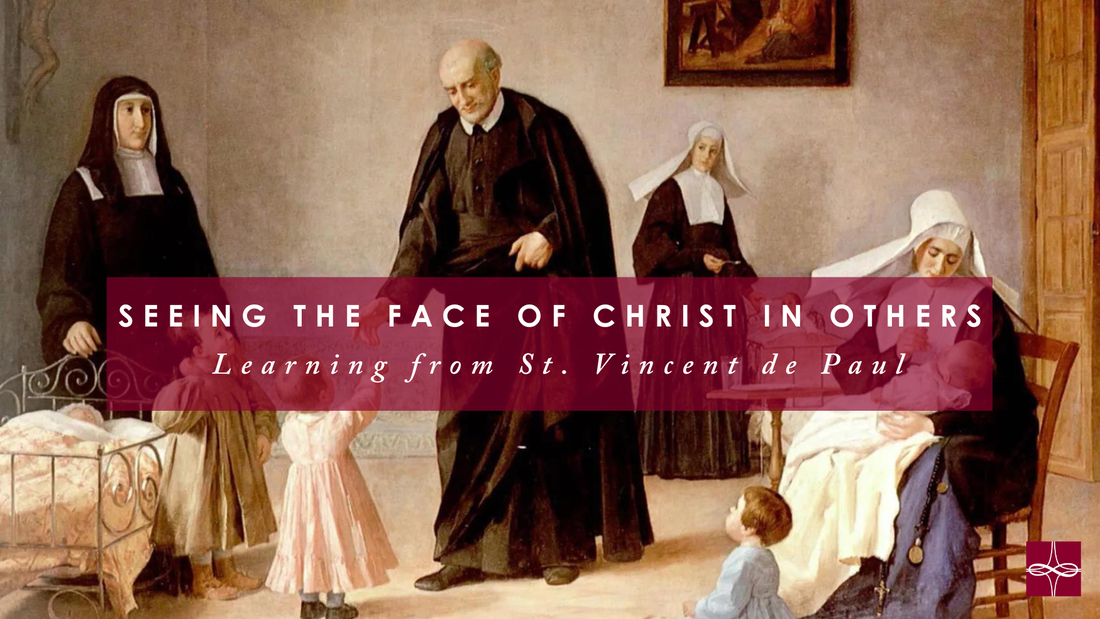

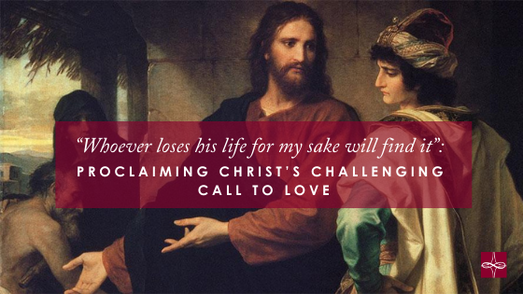

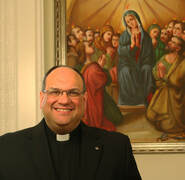


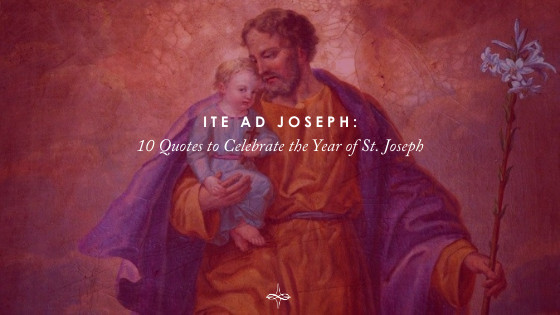



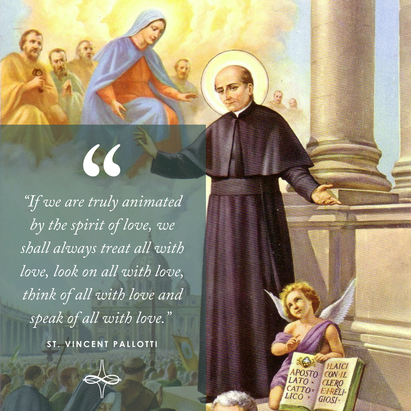
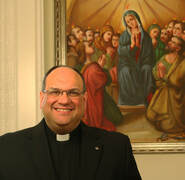
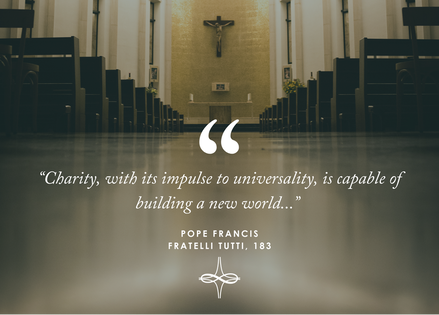
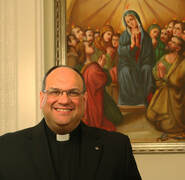

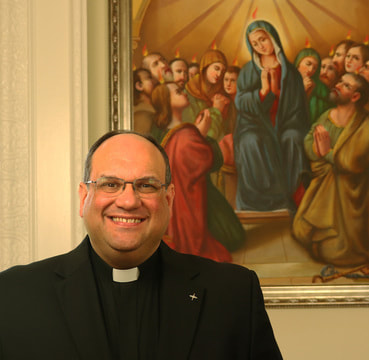



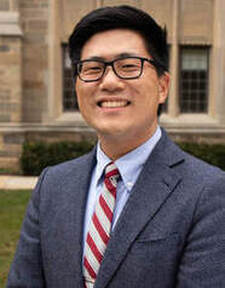
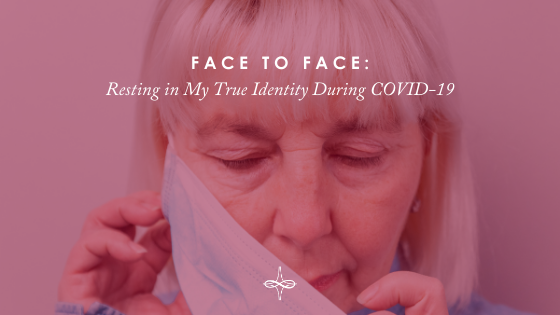


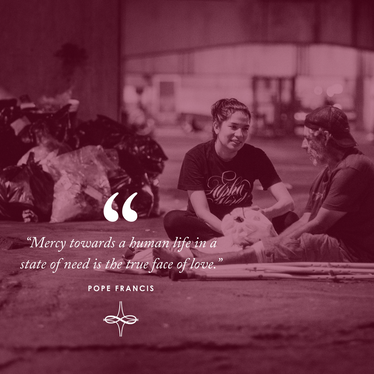
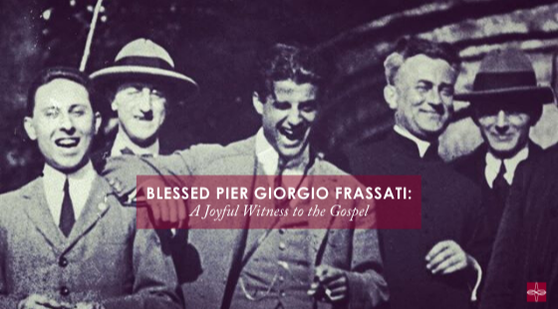

 RSS Feed
RSS Feed